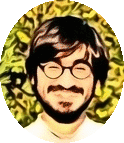And It Begins - Sierra Leone’s Civic Tech Movement
This post was original published on the Code for Africa Medium Publication, under a Creative Commons CC-BY-SA 4.0 License
Cautious excitement and anticipation was in the air this Wednesday at the Sensi Tech Hub in Freetown, Sierra Leone. The 28 odd people gathered at the venue were the finalists from the country’s first ever d|Bootcamp that was held in June, and the event marked the official beginning of the Aftercare program, along with prize distribution for all the finalists. The d|Bootcamp in June witnessed some tremendous ideas that revolved around civic engagement, open data, and on how to use technology for solving some of the most pressing needs of Sierra Leone. Over the course of the 4-day event, the 8 participating teams went through gruelling sessions of revamping their project ideas, designing basic project wireframes and refining the workflows for the successful execution of their ideas. The bootcamp was organised by Code for Africa, in collaboration with the World Bank, while Code4Salone and Sensi Tech Hub were the on-ground partners for executing the event in Freetown. The 5 finalist teams selected from the bootcamp will now be incubated for the next 6 months, and would be provided with support of up to USD 25,000 in the form of technical assistance, mentorship and working space. The teams are all tackling some very important issues that Sierra Leone is facing. These range from making the parliamentary proceedings more transparent to creating web platforms for mapping and monitoring of health facilities in the country.
Memba-O! aims to act as a parliamentary watchdog, enabling citizens to track the voting records of parliamentarians via a web application.
mWash will use a mobile application to map all public water points in the country and create a community platform for reporting and tracking of contaminated water sites.
Mbate Konli (Solve Cholera) is looking to use geo-location features on mobile phones to assist medical facilities in containing the regular cholera outbreaks.
Hazard Map will map all disaster prone areas in Freetown, in order to provide an effective way for the government to assist the residents in these areas.
Health Finder aims to make it easier for people to use the country’s Free Health Care system via hospital rankings and availability of health services in nearby localities.
d|Bootcamp Aftercare Programme Kicked Off
The proceedings started with updating the participants of all the logistics and trainings to be conducted for the next six months. There would be a minimum of 2 weekly meetups between the teams and the software developers from Code4Salone, accompanied by constant online collaboration and communication with the teams via Slack and Google Groups.

Hacks/Hackers Freetown Meetups
Next, Morris Marrah, founder and Director of Sensi Hub, outlined the 12 Hacks/Hackers Freetown meetups that have been planned for the next six months. As the latest local chapter in this international grassroots journalism movement, the aim of Hacks/Hackers Freetown would be to groom an active community of journalists, civic techies and advocates who would be discussing and working on ideas on how to reimagine the delivery of citizen-centric news and journalism in the country.

Prize Giving Ceremony
With all the important details done and dusted, the prizes were finally distributed to the teams, something that they had been eagerly waiting for.




Finally, wrapping things up and just to give the teams a small taste of the kind of work that is expected from them for the next six month, everyone dived into drafting their project concept notes. These will form the blueprint of the projects for the next six months. Kickstarting a civic tech movement in Sierra Leone has been a long time coming. The country’s youth and nascent technology sector is desperate for an opportunity to create their niche in the continent’s greater tech movement. The journey will in no way be an easy one, but all of us are excited and really looking forward to some intense, hands on work in the upcoming months. Keep an eye on this space for more updates on the tech revolution from ‘Mama Salone’ !

Leave a Comment